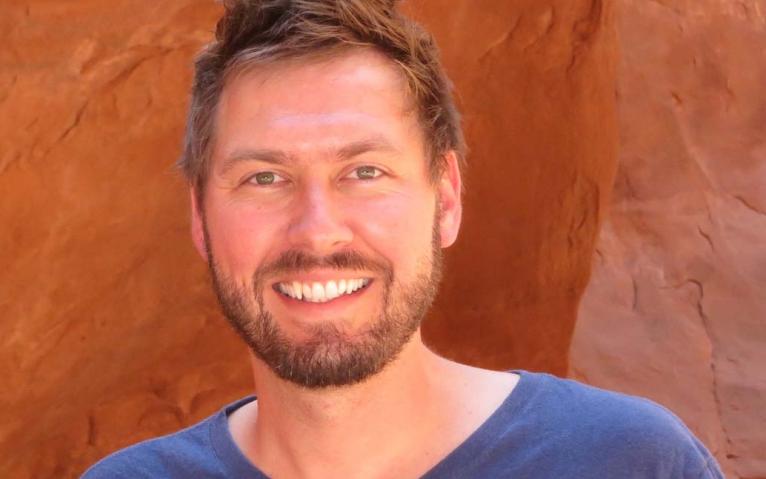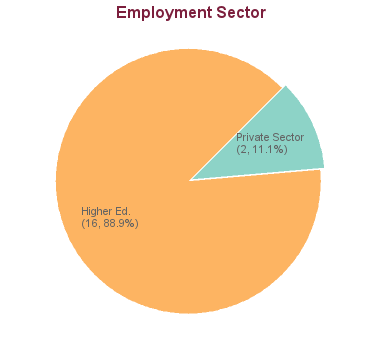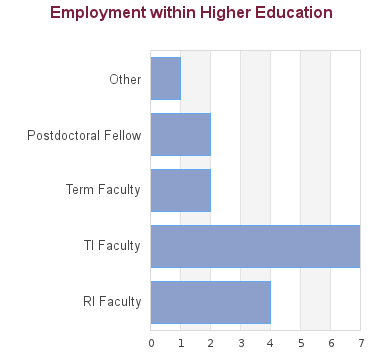
Taylor Davis
Job Title
Assistant Professor
Employer
Purdue University

Review details about the recently announced changes to study and work permits that apply to master’s and doctoral degree students. Read more
The UBC PhD in Philosophy provides students with intense philosophical training, and can help them transition to careers in philosophical research and teaching.
Those admitted will work with award-winning faculty members who engage in research in a wide variety of areas, including the philosophy of science, philosophy of mind, metaphysics, epistemology, philosophy of language, aesthetics, ethics, social/political philosophy, feminist philosophy, logic, Asian philosophy and the history of Western philosophy.
Students also get the opportunity to gain experience of teaching philosophy, through work as teaching assistants and instructors of record in a broad range of courses.
Students in the UBC Department of Philosophy's doctoral programme work closely with the department's faculty, and so benefit fully from our internationally recognized expertise in a unique range of philosophical fields. The department has a supportive, collegial, and philosophically inspiring culture. Students have a range of opportunities to participate fully in its intellectual life. They are also encouraged to participate in the broader community of philosophers, with several sources of funding being available that enable students to present their research at international academic conferences.
During their first two years in the program all students take courses that provide them with expertise in a broad range of philosophical topics, including value theory, the history of philosophy, and the core areas of metaphysics and epistemology. They also receive training in whatever formal research methods might be necessary for their work. Students who successfully complete the department's comprehensive examination then go on to write a dissertation, working under the supervision of a committee of faculty members, in which their own philosophical ideas are presented and explained.
The Faculty of Graduate and Postdoctoral Studies establishes the minimum admission requirements common to all applicants, usually a minimum overall average in the B+ range (76% at UBC). The graduate program that you are applying to may have additional requirements. Please review the specific requirements for applicants with credentials from institutions in:
Each program may set higher academic minimum requirements. Please review the program website carefully to understand the program requirements. Meeting the minimum requirements does not guarantee admission as it is a competitive process.
Applicants from a university outside Canada in which English is not the primary language of instruction must provide results of an English language proficiency examination as part of their application. Tests must have been taken within the last 24 months at the time of submission of your application.
Minimum requirements for the two most common English language proficiency tests to apply to this program are listed below:
Overall score requirement: 100
Reading
22
Writing
21
Speaking
21
Listening
22
Overall score requirement: 7.0
Reading
6.5
Writing
6.5
Speaking
6.5
Listening
6.5
Some programs require additional test scores such as the Graduate Record Examination (GRE) or the Graduate Management Test (GMAT). The requirements for this program are:
The GRE is not required.
Deadline to submit online application. No changes can be made to the application after submission.
Transcript DeadlineDeadline to upload scans of official transcripts through the applicant portal in support of a submitted application. Information for accessing the applicant portal will be provided after submitting an online application for admission.
Referee DeadlineDeadline for the referees identified in the application for admission to submit references. See Letters of Reference for more information.
All applicants have to submit transcripts from all past post-secondary study. Document submission requirements depend on whether your institution of study is within Canada or outside of Canada.
A minimum of three references are required for application to graduate programs at UBC. References should be requested from individuals who are prepared to provide a report on your academic ability and qualifications.
Many programs require a statement of interest, sometimes called a "statement of intent", "description of research interests" or something similar.
Students in research-based programs usually require a faculty member to function as their thesis supervisor. Please follow the instructions provided by each program whether applicants should contact faculty members.
Permanent Residents of Canada must provide a clear photocopy of both sides of the Permanent Resident card.
All applicants must complete an online application form and pay the application fee to be considered for admission to UBC.
| Fees | Canadian Citizen / Permanent Resident / Refugee / Diplomat | International |
|---|---|---|
| Application Fee | $116.25 | $168.25 |
| Tuition * | ||
| Installments per year | 3 | 3 |
| Tuition per installment | $1,875.34 | $3,294.66 |
| Tuition per year (plus annual increase, usually 2%-5%) | $5,626.02 | $9,883.98 |
| Int. Tuition Award (ITA) per year (if eligible) | $3,200.00 (-) | |
| Other Fees and Costs | ||
| Student Fees (yearly) | $1,116.60 (approx.) | |
| Costs of living | Estimate your costs of living with our interactive tool in order to start developing a financial plan for your graduate studies. | |
Applicants to UBC have access to a variety of funding options, including merit-based (i.e. based on your academic performance) and need-based (i.e. based on your financial situation) opportunities.
From September 2024 all full-time students in UBC-Vancouver PhD programs will be provided with a funding package of at least $24,000 for each of the first four years of their PhD. The funding package may consist of any combination of internal or external awards, teaching-related work, research assistantships, and graduate academic assistantships. Please note that many graduate programs provide funding packages that are substantially greater than $24,000 per year. Please check with your prospective graduate program for specific details of the funding provided to its PhD students.
All applicants are encouraged to review the awards listing to identify potential opportunities to fund their graduate education. The database lists merit-based scholarships and awards and allows for filtering by various criteria, such as domestic vs. international or degree level.
Many professors are able to provide Research Assistantships (GRA) from their research grants to support full-time graduate students studying under their supervision. The duties constitute part of the student's graduate degree requirements. A Graduate Research Assistantship is considered a form of fellowship for a period of graduate study and is therefore not covered by a collective agreement. Stipends vary widely, and are dependent on the field of study and the type of research grant from which the assistantship is being funded.
Graduate programs may have Teaching Assistantships available for registered full-time graduate students. Full teaching assistantships involve 12 hours work per week in preparation, lecturing, or laboratory instruction although many graduate programs offer partial TA appointments at less than 12 hours per week. Teaching assistantship rates are set by collective bargaining between the University and the Teaching Assistants' Union.
Academic Assistantships are employment opportunities to perform work that is relevant to the university or to an individual faculty member, but not to support the student’s graduate research and thesis. Wages are considered regular earnings and when paid monthly, include vacation pay.
Canadian and US applicants may qualify for governmental loans to finance their studies. Please review eligibility and types of loans.
All students may be able to access private sector or bank loans.
Many foreign governments provide support to their citizens in pursuing education abroad. International applicants should check the various governmental resources in their home country, such as the Department of Education, for available scholarships.
The possibility to pursue work to supplement income may depend on the demands the program has on students. It should be carefully weighed if work leads to prolonged program durations or whether work placements can be meaningfully embedded into a program.
International students enrolled as full-time students with a valid study permit can work on campus for unlimited hours and work off-campus for no more than 20 hours a week.
A good starting point to explore student jobs is the UBC Work Learn program or a Co-Op placement.
Students with taxable income in Canada may be able to claim federal or provincial tax credits.
Canadian residents with RRSP accounts may be able to use the Lifelong Learning Plan (LLP) which allows students to withdraw amounts from their registered retirement savings plan (RRSPs) to finance full-time training or education for themselves or their partner.
Please review Filing taxes in Canada on the student services website for more information.
Applicants have access to the cost estimator to develop a financial plan that takes into account various income sources and expenses.
20 students graduated between 2005 and 2013. Of these, career information was obtained for 18 alumni (based on research conducted between Feb-May 2016):


Graduates from UBC's Philosophy PhD program have taken academic posts in philosophy, and in related disciplines, at research universities around the world. They also have a broad range of research skills, which make them attractive to employers in a range of fields, especially in those relating to media and the arts.
These statistics show data for the Doctor of Philosophy in Philosophy (PhD). Data are separated for each degree program combination. You may view data for other degree options in the respective program profile.
| 2023 | 2022 | 2021 | 2020 | 2019 | |
|---|---|---|---|---|---|
| Applications | 131 | 134 | 143 | 112 | 111 |
| Offers | 16 | 8 | 15 | 9 | 13 |
| New Registrations | 4 | 6 | 8 | 5 | 7 |
| Total Enrolment | 41 | 42 | 36 | 30 | 34 |
Students in research-based programs usually require a faculty member to function as their thesis supervisor. Please follow the instructions provided by each program whether applicants should contact faculty members.
These videos contain some general advice from faculty across UBC on finding and reaching out to a supervisor. They are not program specific.
| Year | Citation |
|---|---|
| 2020 | Dr. Van der Berg studied the cognitive mechanisms that underlie our appreciative engagement with things we value. He showed how existing theories of appreciation, in their narrow focus on our evaluative judgements and experiences of pleasure, overlook the importance of how our attention is modulated as episodes of appreciation unfold. |
| 2019 | Dr. Livernois examined the theoretical foundations of market-based policies and cost-benefit analysis, arguing that both fall short of delivering results that could forge sound environmental policy. The outcome of this research was to clarify misguided economic concepts with the aim of contributing to the improvement of environmental policy. |
| 2018 | Dr. Leder developed a novel skill-based, naturalist theory of mental health. |
| 2017 | Dr. Byun examined the philosophical origin of agnosticism by analyzing underappreciated works of the inventor of the word "agnostic." Thomas Huxley, also known as "Darwin's bulldog," proposed agnosticism as a guide to knowledge. This research shows that it is not a passive, wishy-washy stance, but a constructive, confident position on evidence. |
| 2016 | When someone is unsure about the truth of a statement, they may have a partial belief; for example the belief that the probability of rain tomorrow is three out of ten. Dr. Lukits defended the claim that rational agents update their partial beliefs by ensuring that they respect evidence without gaining more information from it than necessary. |
| 2015 | Dr. French investigated how the philosopher Rudolf Carnap understood logic as a kind of conceptual technology. The result is philosophy as conceptual engineering: scientific concepts can be designed and constructed to satisfy the pragmatic demands of scientists. His work has implications for how to view the conceptual foundations of the sciences. |
| 2015 | What is a free society? Dr. Hellewell proposes that we understand liberty, not as the absence of interference, but as security against ``arbitrary power``, the power that lacks effective mechanisms for ensuring it is accountable to our rights. This conclusion has important implications for the design of political institutions in free societies. |
| 2015 | Dr. DesRoches explored the concept of natural capital. Economists who embrace natural capital no longer view nature as storehouse of inert materials, but rather as a collection of active production processes that are furnished by nature for free. Nature is depicted as a garden containing objects purposefully arranged by humans to serve their own needs. |
| 2014 | Dr. Rosales worked in the history and philosophy of science, at both the Department of Philosophy and the Biodiversity Research Centre at UBC . He showed that scientists need narratives to explore, represent, and explain the world. Our understanding of science is incomplete without taking into account its narrative component. |
| 2014 | Dr. Davis examined the role of evolutionary theory in explaining religious belief and behaviour. His research shows that both genetic selection and cultural selection play essential roles in religious evolution, and this research contributes to our understanding not only of religious psychology, but also of human evolution in general. |
Philosophy offers courses in most major areas of the discipline, including epistemology, metaphysics, ethics, political and social philosophy, philosophy of art, philosophy of mind, philosophy of language, logic, philosophy of science, philosophy of biology, philosophy of mathematics, and history of philosophy.
Departments/Programs may update graduate degree program details through the Faculty & Staff portal. To update contact details for application inquiries, please use this form.

This city won’t disappoint. It has it all: sea, parks, mountains, beaches and all four seasons, including beautiful summers and mild, wet winters with snow.